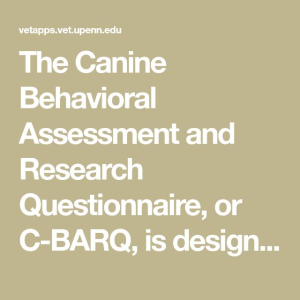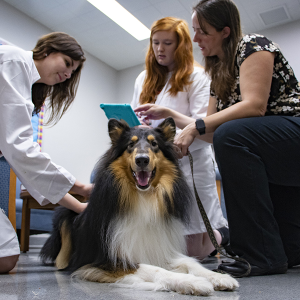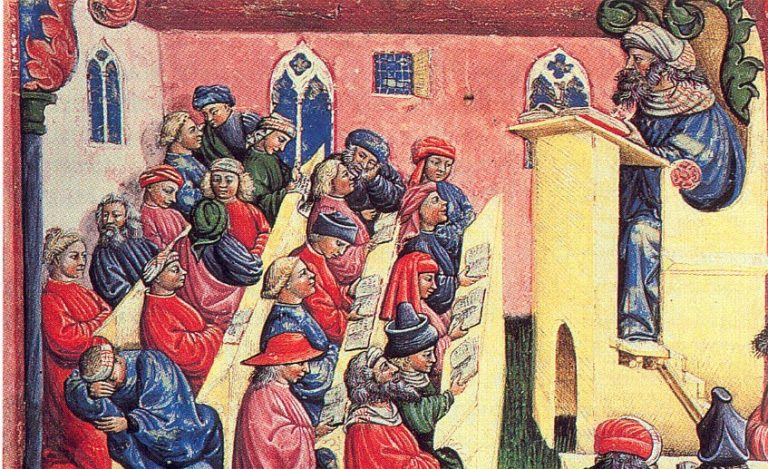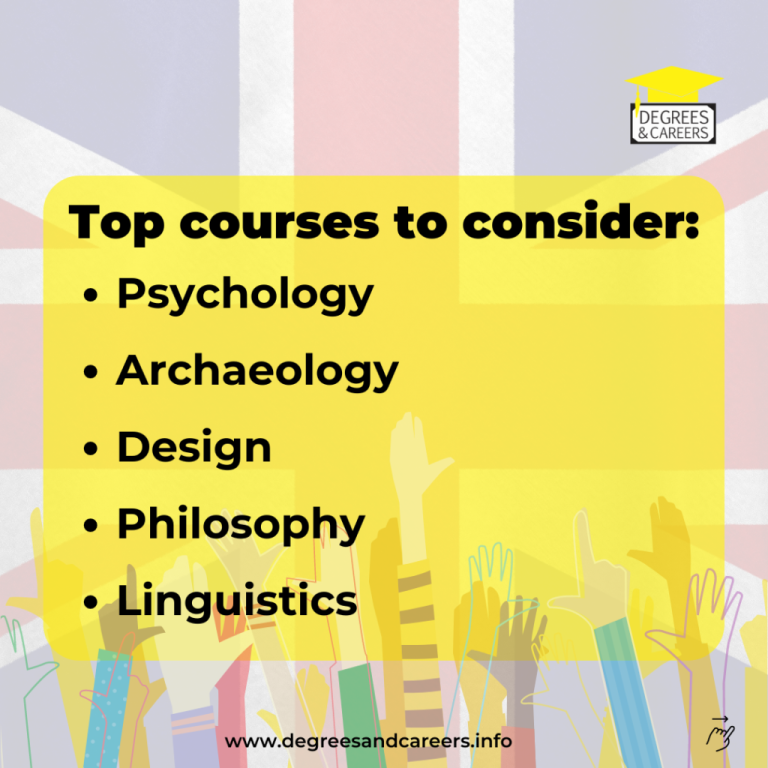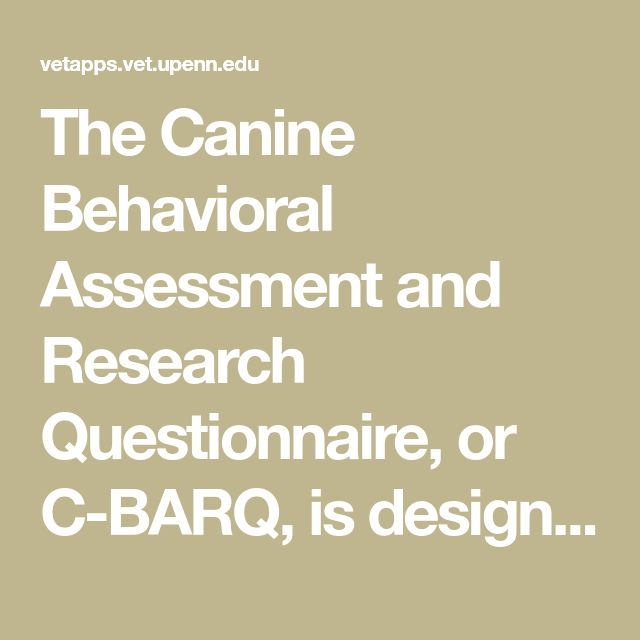The recent medieval studies conference held at Harvard was a landmark event that brought together over 800 scholars from around the globe to celebrate the richness of medieval literature and scholarship. As part of the Harvard medieval academy’s centennial celebration, this conference served as a platform for engaging discussions about the enduring influence of giants like Geoffrey Chaucer on contemporary narratives. Attendees participated in dynamic workshops and presentations, exploring themes ranging from the complexities of medieval trade agreements to the transformative power that Chaucer’s works continue to wield in global medieval studies. This vibrant academic gathering not only highlighted critical medieval academics discussions but also illustrated how the field continues to evolve, drawing connections between historical and modern textual interpretations. With such a diverse array of topics presented, the medieval studies conference reaffirmed its status as a vital hub for those passionate about the past and its impact on today’s literary landscape.
The recent convening of medievalists at Harvard underscores a pivotal moment for enthusiasts of the Middle Ages and interdisciplinary scholarship. Known as the Medieval Academy of America’s 100th annual meeting, this event signified a reunion for scholars dedicated to exploring the intricacies of medieval culture and literature. The discourse ranged widely, from examinations of historical trade practices to the ongoing relevance of classic texts in contemporary contexts. By fostering communication across diverse academic backgrounds, this gathering exemplified the potential of global medieval studies as a field where traditional boundaries blur and fresh perspectives emerge. As scholars engage in discussions that transcend geographic and temporal limits, the exchange of ideas at such conferences sets the stage for future explorations in the rich tapestry of medieval scholarship.
Exploring Medieval Studies at Harvard
Harvard University has long been a pivotal center for the advancement of medieval studies, specifically through institutions like the Harvard Medieval Academy. Over the past century, this prestigious academy has cultivated outstanding scholarship in medieval literature, history, and culture, drawing researchers and academics from around the globe. The recent 100th annual meeting of the Medieval Academy of America exemplified this vibrant academic community, where over 800 scholars from 23 countries gathered to discuss groundbreaking research and current trends in the field.
During this three-day conference, participants engaged in various activities, including workshops, plenary addresses, and presentations. This environment fostered not only collaborations among medievalists but also enabled a cross-pollination of ideas across disciplines, highlighting the interdisciplinary nature of medieval studies. For instance, discussions concerning the influence of medieval texts, including works by Geoffrey Chaucer, on today’s literature reflect the academy’s commitment to bridging historical insights with contemporary issues.
The Impact of Chaucer on Modern Literature
Geoffrey Chaucer, often referred to as the father of English literature, has significantly influenced both medieval and modern storytelling. His keen observations on human nature, social dynamics, and the complexities of truth remain relevant today, echoing in the narratives of contemporary authors. Academic discussions at the recent conference highlighted how Chaucer’s writings, particularly ‘The Canterbury Tales,’ resonate with present-day concerns about misinformation and the nature of truth in literature.
Scholars presented insights into Chaucer’s exploration of poetic authority, drawing parallels to modern works like Patricia Lockwood’s ‘No One Is Talking About This.’ These comparisons illustrate the continuity of themes across centuries, as both authors grapple with the fluidity between fact and fiction in their narratives. This intersection underscores not only Chaucer’s lasting legacy but also the enduring relevance of medieval literature in current cultural discourses.
Global Perspectives in Medieval Studies
The 100th annual gathering of the Medieval Academy of America at Harvard marked a distinct commitment to embracing global perspectives within medieval studies. Presentations ranged from feline trade agreements in medieval Venice to regional assemblies in Ireland, reflecting the diverse scholarship emerging from varying geographical contexts. This emphasis on a global approach challenges the traditionally Eurocentric perspectives that historically dominated medieval studies, broadening the field’s scope and interaction.
Discussions on teaching the Global Middle Ages spearheaded by Assistant Professor Anna Wilson showcased innovative pedagogical strategies for integrating global contexts into medieval curricula. The workshop encouraged graduate students to explore how various cultures interacted during the medieval period, enriching their understanding of the interconnectedness of historical narratives. This shift towards global medieval studies represents an essential evolution of the discipline, advocating for a more inclusive representation of medieval narratives.
Innovative Research in Medieval Academics Discussions
Medieval studies has thrived due to innovative research spearheaded by emerging scholars who challenge traditional narratives. At the Harvard conference, Ph.D. candidates shared their comprehensive research projects on topics like medieval trade agreements and interpretations of ‘Beowulf.’ These fresh perspectives underscore the vibrant discussions taking place within the field, revealing the dynamic and evolving nature of medieval scholarship.
By encouraging rigorous academic discourse, medieval studies foster a collaborative environment for scholars to engage deeply with their subjects and with each other. Presenters, like Emily Sun, articulated their experiences of returning to in-person conferences after the pandemic, emphasizing the importance of these scholarly gatherings in facilitating real-time dialogues that enrich their research endeavors and academic lives.
The Future of Medieval Studies
Looking ahead, the future of medieval studies promises to be as dynamic and evolving as its past. At the recent Medieval Academy conference, discussions revolved around how the discipline can grow, adapt, and respond to contemporary issues. Scholars reflected on the necessity to integrate new methodologies, such as digital humanities, which can offer fresh insights into ancient texts and cultural practices. This forward-thinking approach is crucial in ensuring that medieval studies continue to engage with current academic dialogues.
Moreover, the continued collaboration among global scholars exemplifies the potential for an inclusive approach to medieval studies. As more voices from diverse backgrounds contribute to the discourse, the field can expand its understanding of medieval experiences. This global engagement not only enriches academic discussions but also offers a more comprehensive view of how medieval realities shaped the world we know today.
Interdisciplinary Approaches in Medieval Scholarship
The nature of medieval scholarship often thrives on interdisciplinary collaboration, inviting insights from various fields such as history, literature, and religious studies. The recent medieval studies conference at Harvard underscored this interdisciplinary approach, showcasing how scholars are weaving together multiple perspectives to enhance their understanding of medieval texts and contexts. For instance, presentations that merged literary analysis with historical scrutiny illuminated the complexities of medieval life in ways that single-discipline studies could not.
This interdisciplinary spirit not only enriches scholarship but also helps illuminate the multifaceted dimensions of medieval society. As more scholars adopt interdisciplinary methodologies, we’re likely to see a resurgence in the study of lesser-known medieval traditions and ideas, broadening our comprehension of the medieval period and its legacies. Thus, conversations that cross disciplinary lines become focal points where fresh ideas and collaborations flourish, shaping the future landscape of medieval studies.
Building Community through Medieval Academics
The Medieval Academy conference serves not just as an academic meeting but as a cultural hub where scholars form networks and foster community spirit. For many attendees, the event feels like a homecoming, a place to reconnect with peers and mentors who share a passion for medieval scholarship. These gatherings offer invaluable opportunities for early-career researchers and graduate students to forge lasting connections, leading to future collaborations and academic growth.
In light of recent challenges posed by the global pandemic, the importance of in-person scholarly interactions has never been more palpable. The warmth of face-to-face discussions and the informal exchanges that occur outside formal presentations contribute significantly to the community’s vitality. This community-building aspect highlights the necessity of such conferences in sustaining the enthusiasm and dedication of those committed to furthering medieval studies.
Literature in the Context of Medieval Experiences
Literature serves as a critical lens through which we can examine medieval experiences, beliefs, and societal structures. The 100th annual meeting provided a robust forum for exploring how medieval texts like those of Chaucer allow us to navigate the intricacies of past human experiences. By analyzing these works alongside contemporary literature, scholars can explore the perennial themes of human struggle, identity, and morality that resonate through time.
The integration of historical narratives with literary analysis reveals the interconnectedness of textual traditions and societal shifts. As discussions unfold around medieval literature’s influences on modern narratives, we gain deeper insights into how literature has consistently served as a mirror to human endeavors and societal landscapes. This exploration not only enriches our understanding of medieval contexts but also allows us to appreciate the continuity of concerns shared across epochs.
Innovations in Teaching Medieval Literature
Pedagogical innovations are essential for invigorating the teaching of medieval literature in higher education. The recent conference showcased a series of workshops focused on enhancing the delivery of medieval texts in the classroom, engaging both students and instructors in active learning experiences. Faculty and graduate students alike discussed how modern technologies can complement traditional approaches, making medieval literature more accessible and appealing to contemporary audiences.
By incorporating digital resources and collaborative projects, educators can foster an environment where students actively participate in their learning. Such methods not only help demystify complex texts but also encourage students to relate medieval literature to their own lives and societal issues. These innovations signify a commitment to evolving the field, ensuring that the voices of the past continue to inspire future generations of literature enthusiasts.
Frequently Asked Questions
What is the significance of the Harvard Medieval Academy in terms of medieval studies conferences?
The Harvard Medieval Academy is recognized as a central hub for medieval studies, particularly during its annual conference, which celebrates a century of scholarly advancements in the field. It brings together academics from around the globe, emphasizing the growing interdisciplinary nature of medieval studies.
How do medieval academics discussions at the conference reflect the influence of Chaucer on contemporary literature?
Discussions during the medieval studies conference often highlight the lasting impact of Geoffrey Chaucer on contemporary literature. Presentations explore themes from his works, such as poetic authority and creativity, showing how medieval literature continues to resonate in modern narratives, as evidenced by parallels drawn between Chaucer’s poetry and modern novels.
What topics are commonly presented at the medieval studies conference?
At the medieval studies conference, topics range widely, covering areas such as medieval trade, literature, and global medieval narratives. Presentations often explore diverse aspects of medieval life across different regions, from Venetian trade agreements to the cultural significance of events like the Óenach Tailteann in Ireland.
How does the medieval studies conference foster global perspectives in medieval scholarship?
The conference emphasizes global medieval studies by encouraging discussions and presentations that highlight the interconnectedness of medieval cultures around the world. Workshops and sessions delve into medieval studies beyond Europe, exploring topics from Africa to Asia, thereby broadening the scope and understanding of the Middle Ages.
In what ways have medieval studies conferences evolved over the past century?
Over the past century, medieval studies conferences have evolved to become more interdisciplinary and inclusive of global perspectives. The recent gathering at Harvard showcased a diverse array of topics and speakers, reflecting the dynamic growth of the field and its relevance in contemporary discussions about history, literature, and culture.
Why is attending the medieval studies conference important for graduate students?
Attending the medieval studies conference provides graduate students with invaluable opportunities for networking, presenting their research, and engaging with established scholars. It allows them to share their work, receive feedback, and foster collaborative relationships that are crucial for their academic development.
What can newcomers to the Harvard Medieval Academy conference expect?
Newcomers to the Harvard Medieval Academy conference can expect a welcoming environment filled with a rich array of scholarly presentations and discussions. They will have the chance to interact with leading experts in medieval studies, attend engaging workshops, and participate in meaningful dialogues about the field’s future.
How has the COVID-19 pandemic impacted medieval studies conferences?
The COVID-19 pandemic initially restricted in-person gatherings, but the return of conferences like Harvard’s Medieval Academy highlights a renewed appreciation for face-to-face interactions. Scholars emphasize how these events facilitate important discussions and foster connections that are vital for advancing scholarship in medieval studies.
What role does interdisciplinary research play at the medieval studies conference?
Interdisciplinary research plays a crucial role at the medieval studies conference, with many presentations encompassing fields such as history, literature, and cultural studies. This approach allows for a more comprehensive understanding of the medieval period, showcasing how various disciplines intersect in the study of medieval academia.
| Key Point | Details |
|---|---|
| Conference Overview | The Medieval Academy of America held its 100th annual meeting in March 2025, bringing together 800 scholars from 23 countries. |
| Keynote Speakers | Sean Gilsdorf and Fernanda García-Oteyza delivered pivotal insights on the intersection of medieval literature and contemporary issues, such as misinformation. |
| Interdisciplinary Focus | The event showcased the interdisciplinary nature of medieval studies, with presentations spanning various global regions and themes. |
| Historical Significance | This year’s conference marked the first return to Harvard’s campus since its 50th anniversary in 1975, highlighting the evolution of the field. |
| Presentations | Topics included medieval trade, cultural translations, and global pedagogy, reflecting a wide array of scholarly interests. |
| Personal Experiences | Attendees emphasized the value of live interactions and the renewal of scholarly community post-COVID. |
Summary
The Medieval Studies Conference held at Harvard represents a pivotal moment for scholars in the field, reflecting on a century of progress and evolving discourse. This gathering not only reaffirms the significance of medieval studies in understanding contemporary issues but also fosters a global dialogue among researchers. The successful integration of diverse topics, from medieval trade to contemporary interpretations of classical literature, highlights the rich tapestry of medieval scholarship. As we move forward, discussions like these are crucial in shaping the trajectory of medieval studies, ensuring that it remains relevant and impactful in the modern academic landscape.


